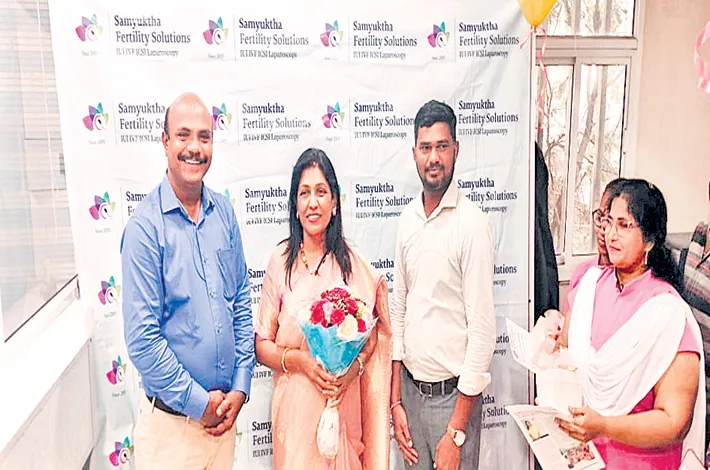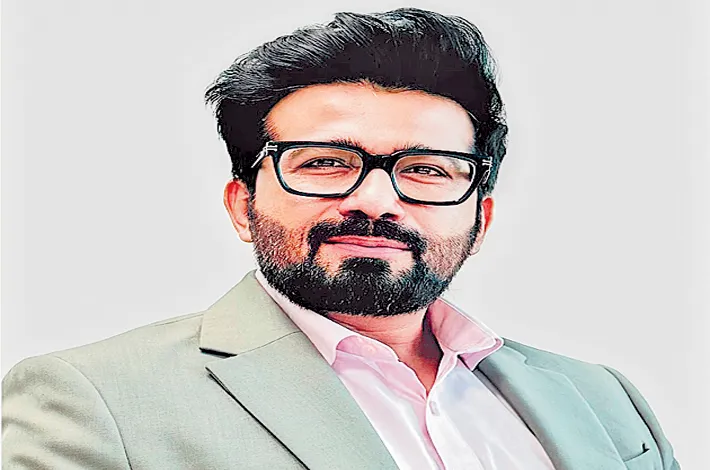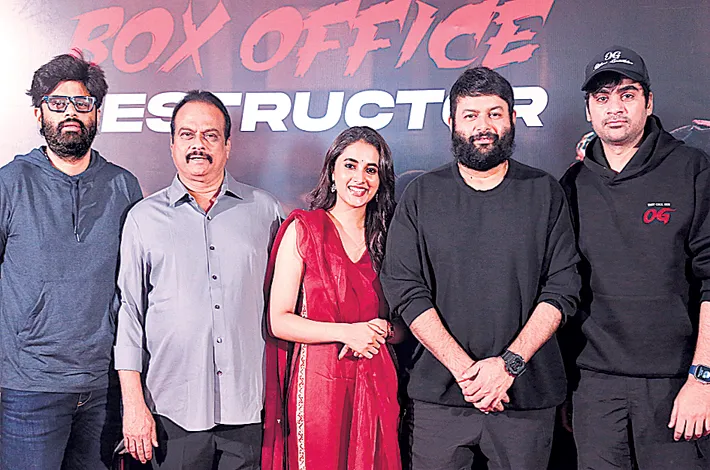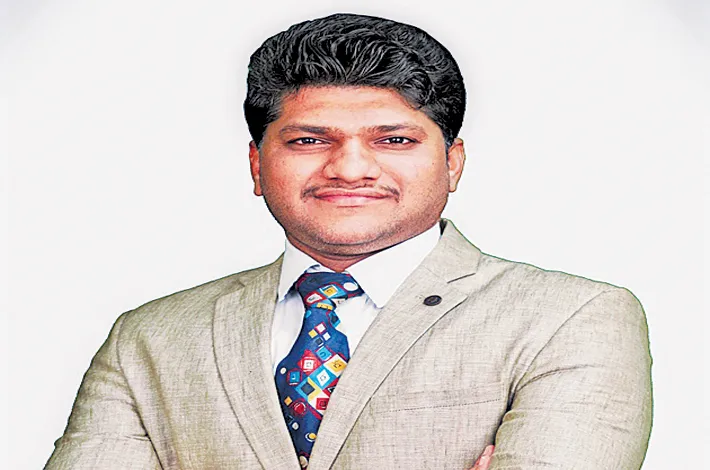Moulding clay, pots & love
22-09-2025 12:00:00 AM
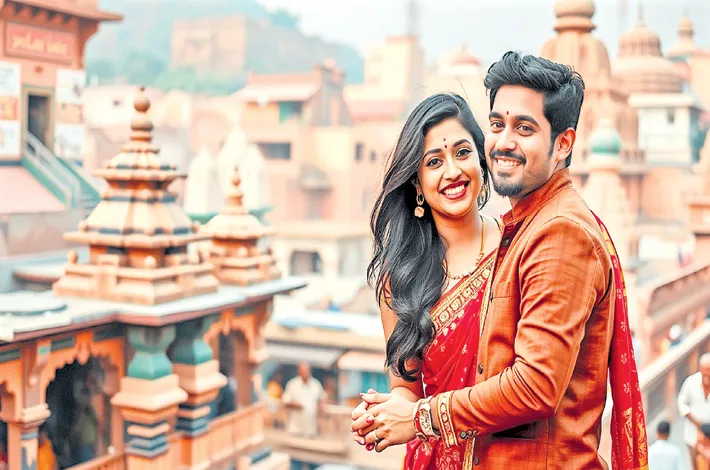
In the heart of Kolkata, where the Hooghly River whispered secrets to the monsoon-kissed evenings, Anjali stepped off the rattling yellow taxi onto the chaotic lanes of Kumartuli. It was the eve of Navratri, and the city pulsed with an electric fervor. Clay idols of Ma Durga gleamed under flickering tube lights, their fierce eyes promising victory over darkness.
Anjali, a 28-year-old architect from Delhi, had arrived three weeks ago for a heritage restoration project. The city's relentless humidity clung to her like an unwelcome suitor, and the cacophony of horns and hawkers made her miss the orderly bustle of home. But tonight, as dhol drums thundered from every corner, she felt a pull—a fragile thread of curiosity drawing her into the festival's embrace.
She had rented a tiny flat above a bustling sweet shop in Shyambazar, where the air was thick with the scent of mishti doi and frying jalebis. Slipping into a simple red cotton saree—her one concession to the season—Anjali wandered out, the pallu fluttering like a hesitant flag. The streets had transformed into a labyrinth of pandals: makeshift temples bursting with marigold garlands, fairy lights strung like constellations, and women in vibrant ghagra cholis swirling in rhythmic garba circles. Laughter mingled with the chant of "Jai Ma Durga," and for the first time since her arrival, Anjali smiled. She paused at a modest pandal near Manindra Street, where a group of locals danced around a towering idol of the goddess astride her lion, trident raised high.
From the shadows of a banyan tree, Rahul watched her. At 30, he was a potter's son, his hands calloused from molding clay into divine forms during the puja season. Tall and lean, with eyes the color of monsoon clouds and a smile that crinkled like old parchment, Rahul had grown up amid these festivities. This year, his family's idol graced a community pandal, and he was the unofficial guardian of the garba nights—ensuring the beats didn't falter, the lamps didn't dim. But tonight, his gaze snagged on the outsider: her tentative steps, the way she clutched her dupatta as if it were a shield against the crowd's warmth.
"First time in Kolkata's Navratri?" His voice cut through the drumbeat, warm and teasing, like spiced chai on a rainy afternoon.
Anjali turned, startled. He stood there, a garland of jasmine tucked behind his ear, a white kurta smeared faintly with clay dust. "How did you know?" she asked, her Delhi accent sharpening the words.
"Your eyes—they're drinking it all in, like a parched traveler at the Ganges." He extended a hand, palm upturned. "I'm Rahul. Come, dance with us. Ma Durga doesn't bite... much."
Hesitant, she placed her hand in his. His grip was firm yet gentle, calluses brushing her skin like a promise. The circle parted, and they joined the whirl. The garba was simple at first—claps syncing with the dhol's ta-ta-ti-ta, feet tracing circles around an imagined flame. Rahul guided her, his laughter bubbling when she stumbled. "Feel the rhythm in your hips, not your head," he murmured, his breath grazing her ear. As the night deepened, Anjali forgot her fatigue, her loneliness. The circle spun faster, skirts flaring like lotus petals, and in the blur of colors—crimson, saffron, emerald—she glimpsed something in Rahul's eyes: a quiet intensity, like the goddess's gaze upon her devotees.
Over the next seven nights, Navratri wove them closer. Each evening, after her long days sketching crumbling havelis, Anjali found her way back to the pandal. Rahul was always there, with a plate of bhog—steaming khichuri laced with ghee—or a stolen moment amid the throng. They pandal-hopped through Kolkata's veins: from the opulent Ekdalia pandal's silver arches to the rustic ones in Behala, where children smeared vermilion on strangers' cheeks. One night, under a sky heavy with stars, they sat by the riverbank during Sandhi Puja. Fireworks cracked like laughter, illuminating the water's ripple.
"Tell me about Delhi," Rahul said, tossing pebbles into the Hooghly. His voice was soft, laced with the city's lilt.
Anjali leaned back on the ghats, her saree pooling around her like spilled wine. "It's fast, fierce—like Durga herself charging into battle. But here... it's alive in a different way. The chaos feels like home now." She paused, tracing the henna patterns on her hands—swirls of lotuses he'd helped her choose at a roadside stall. "And you? A potter who dances like the wind?"
He chuckled, low and resonant. "Clay teaches patience. You shape it, but it fights back—cracks, slumps. Like love, I suppose." His words hung, unspoken threads tightening. That night, as they danced the Garba Ras, his hand lingered on her waist, a spark igniting in the space between beats.
But on Ashtami, the eighth night, shadows crept in. Anjali's project wrapped early; her boss summoned her back to Delhi for a new assignment. "Two days," she confessed to Rahul as they shared rosogollas under the pandal's canopy. The air hummed with anticipation for the grand aarti, priests chanting mantras that echoed like ancient vows.
His face fell, clay-dark eyes searching hers. "Kolkata without you... it'll be like Navratri without the dhol. Empty beats."
The crowd surged forward for kumari puja, little girls dressed as devis receiving blessings. Anjali's heart pounded louder than the drums. She pulled him aside, into the alcove behind the idol, where incense curled like secrets. "Rahul, I don't want to go. Not like this."
He cupped her face, thumbs brushing away a tear she hadn't noticed. "Then don't. Stay. Shape this city with me—your blueprints, my clay. We'll build something eternal, like Ma's idols that rise every year."
The aarti began, conch shells wailing triumph. In that sacred hush, amid the flicker of diyas, Rahul kissed her—soft at first, then fierce, tasting of jaggery and longing. The world blurred: the goddess's lion roared approval in the drums, fireworks bloomed like their unspoken dreams. Anjali melted into him, her fears crumbling like wet earth under his touch.
Navratri ended on Vijayadashami, but their story was just beginning. As the idols were immersed in the river—tears and cheers mingling—Anjali made her call. Delhi could wait; Kolkata had claimed her heart. Rahul's family welcomed her into the Kumartuli fold, her sketches breathing life into their workshop. Months later, under another festive sky, they danced again—not as strangers, but as lovers entwined in the eternal garba of life.
In the city of joy, where every crack holds a story, Anjali and Rahul found their rhythm: a romance forged in clay and color, blessed by the Devi's unyielding grace





